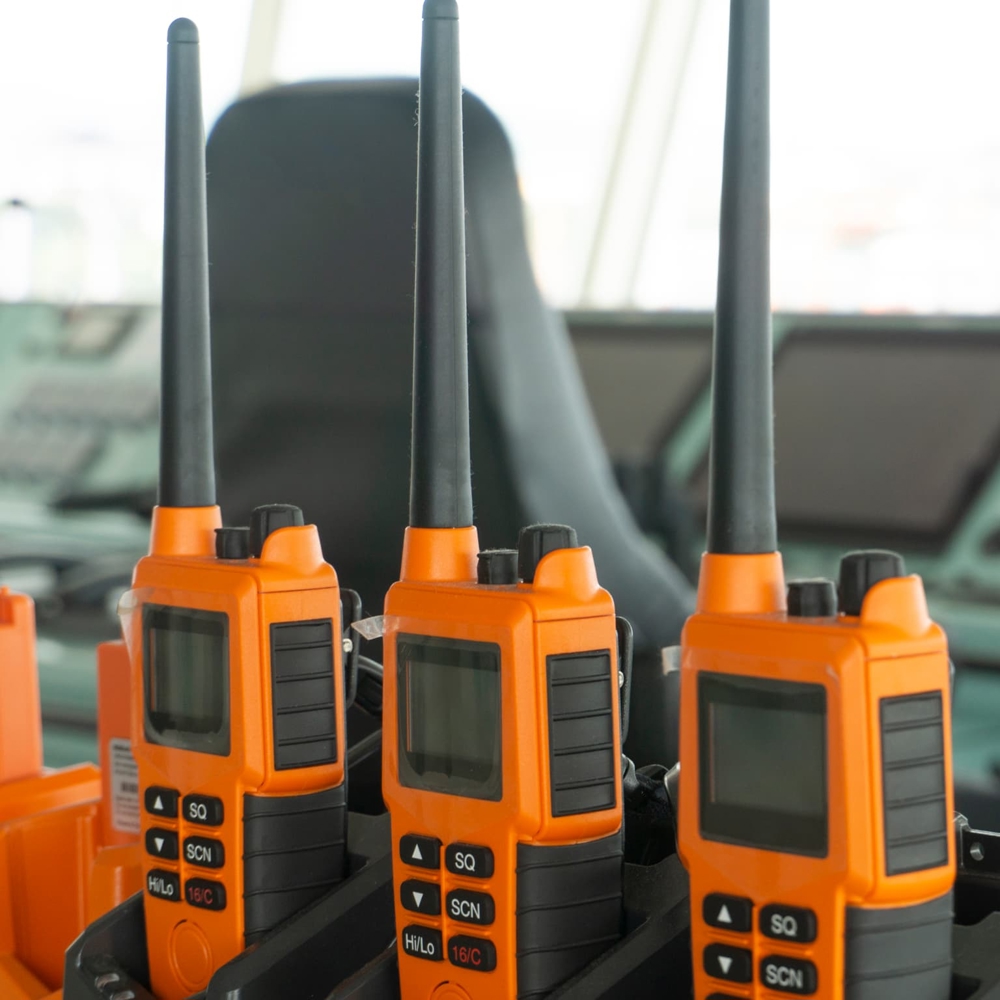Applicability: All shipowners and ship operators of SOLAS ships, shipyards and designers.
A revised SOLAS Chapter IV containing requirements for radiocommunications applies to new and existing ships on or after 1 January 2024.
This has been published by the IMO as Resolution MSC.496(105). It has also published guidelines in COMSAR.1/Circ.32/Rev.3 – Harmonisation of GMDSS Requirements for Radio Installations On Board SOLAS Ships, which will also take effect on 1 January 2024.
Impact of Amendments
The amendments to SOLAS Chapter IV have the following major consequences:
- For ships operating in sea areas A3 or A4, HF direct-printing telegraphy (NBDP) is no longer required for transmission and reception of distress and safety radiocommunications. However, shipowners may choose to retain HF NBDP equipment for reception of maritime safety information (MSI).
- NAVTEX, EGC and HF NBDP receivers will no longer be mandatory. The amended Regulation IV/7.1.1.4 states that “every ship shall be provided with a receiver or receivers capable of receiving MSI and search and rescue related information throughout the entire voyage in which the ship is engaged”. Operators will need to decide what equipment is needed, depending on the ships trading pattern. IMO circular MSC.1/Circ.1645 gives guidance on choosing equipment to meet the new requirement.
The SOLAS amendments have moved the requirements for carrying two-way VHF radiotelephone apparatus and search and rescue transponders (SARTs) from SOLAS Chapter III to Chapter IV. This change has necessitated some amendments to the wording of the related SOLAS certificates. The changes also affect certificates related to the SPS Codes, HSC Codes and MODU Codes.
Summary of Equipment
The table below summaries the SOLAS requirements before and after 2024:
| Equipment | Pre-2024 SOLAS | After 2024 SOLAS |
| VHF / MF / SES / Duplicated VHF & SES | A1 + A2 + A3 | A1 + A2 + A3 |
| VHF / MF / RMSS SES / Duplicated VHF & MF/HF | A1 + A2 + A3 | A1 + A2 + A3 |
| VHF / MF/HF / Duplicated VHF & SESa | A1 + A2 + A3 | A1 + A2 + A3 (VHF / MFb / SES / Duplicate MF/HF) |
| VHF / MF/HF / Duplicated VHF & MF/HF (including HF NBDP) |
A1 + A2 + A3 + A4 | A1 + A2 + A4 (HF NBDP no longer needed) |
| VHF + SESc + MF/HF + Duplicated VHF & MF/HF | - | A1 + A2 + A3 + A4 |
| Notes: SES = Recognized Mobile Satellite Service Ship Earth Station. aSES needs to be listed as primary system after 2024. bA single MF/HF radio installation may be accepted both as a primary MF radio installation and a duplicated MF/HF radio installation, as provided in COMSAR.1/Circ.32/Rev.3. cThis option is only relevant if SES doesn’t have global coverage. |
||
The definition of Sea Area A3 has changed as follows:
- “Sea area A3 means an area, excluding sea areas A1 and A2, within the coverage of a recognised mobile satellite service supported by the ship earth station (SES) carried on board, in which continuous alerting is available”.
This means Sea Area A3 is dependent on the particular recognised satellite service (RMSS) SES equipment installed on the ship. For example, for a ship provided with Inmarsat SES, Sea Area A3 for that ship will be roughly from 70°S to 70°N (i.e. the coverage area for the Inmarsat satellite system). For a ship provided with Iridium SES, Sea Area A3 for that ship would be the entire globe. Where two SES are installed, the SES with the lesser coverage will determine the coverage of the ship. - VHF emergency position indicating radio beacons (EPIRBs), which are not widely used, are no longer acceptable for GMDSS purposes. (This is currently only an option for ships certified for Sea Area A1 alone.) They will need to be replaced with other acceptable equipment, such as a satellite EPIRB.
New radio installations – performance standards delay
Regulation IV/14 introduces several performance standards that replace earlier ones and apply to equipment installed after 1 January 2024. The IACS has published Unified Interpretation UI SC298, interpreting the phrase “installed on or after 1 January 2024”.
However, because of global supply chain problems and shortage of equipment approved to the new standards, the IMO has published MSC.1/Circ.1676 – Delays Affecting the Availability of New GMDSS Equipment Compliant with the Revised Performance Standards set out in Resolutions MSC.511(105), MSC.512(105) and MSC.513(105).
MSC.1/Circ.1676 invites flag Administrations to permit the continued installation of VHF radio installations, MF and MF/HF radio installations and Inmarsat-C ship earth stations approved to the older performance standards until 1 January 2028.
What we advise shipowners and ship operators to do now
It is not envisaged that the revised SOLAS Chapter IV will necessitate any action by shipowners/ ship operators or any new installations of radio equipment on existing ships. The only exception will be the need to replace VHF EPIRBs equipment, something which is not thought to affect many ships. The affected SOLAS certificates will generally be updated at their expiry, in accordance with the guidance provided in MSC-MEPC.5/Circ.6/
For further information
For further information or advice, please get in touch with your local Lloyd's Register office or contact statutorysupport@lr.org
Download PDF of Class News 25/23
This Class News was last updated on the 30 Decemeber 2024.














